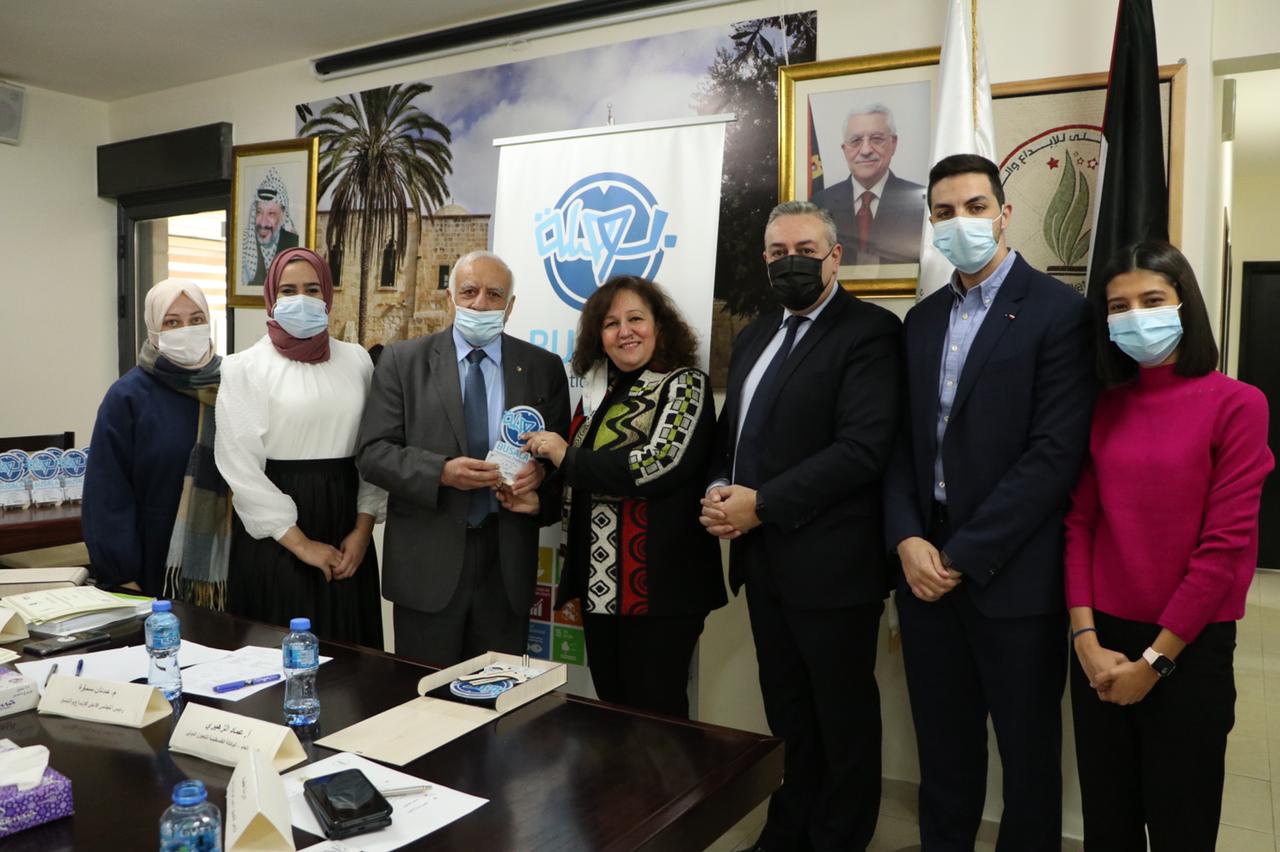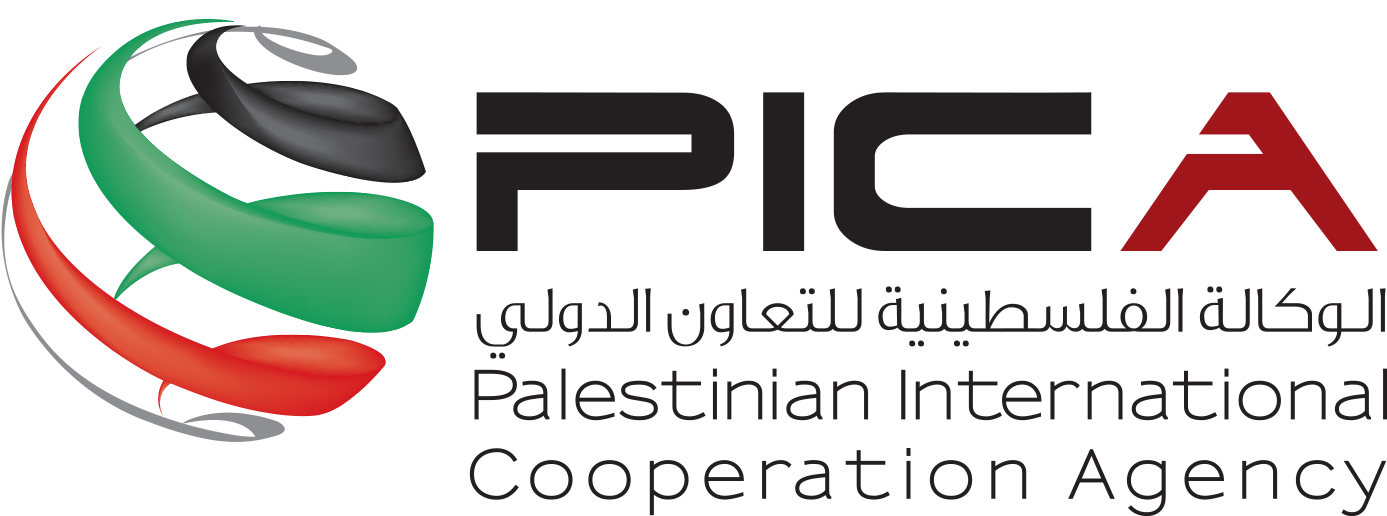
The Palestinian International Cooperation Agency (PICA) and the Higher Council for Innovation & Excellence (HCIE) have announced the winners of Busala Innovation Challenge 2020 – which is an ambitious initiative that aims to provide a platform for Palestinian entrepreneurs, innovators and startups to test, develop and scale their innovative solutions while contributing to the efforts aimed at addressing global development challenges and realizing the UN Sustainable Development Goals (SDGs) in line with the 2030 global development agenda.
The results were officially announced during a press conference which was held at the headquarters of HCIE in Ramallah with the presence of H.E. Adnan Samara (Chairman of HCIE and the President’s advisor on innovation), H.E. Imad Al-Zuhairi, the director general of PICA, H.E. Dr. Safa Nasserldein, the head of exploration and innovation unit at HCIE and Vice President of Al-Quds University, in addition to the board members of HCIE and team members of both HCIE and PICA. Moreover, the winning teams as well as members of the jury committee have also attended the conference either physically or virtually through the online platform Zoom.
It is worth mentioning that in spite of the restrictions imposed due to the outbreak of the COVID-19 pandemic since early 2020, the organizers of the event have managed to implement and finalize most of the competition’s stages virtually. Precisely, a committee of experts have succeeded in evaluating a total of 117 online applications divided into three main categories based on their growth stages:
1- Idea-stage project.
2- Prototype/Minimum Viable Product (MVP).
3- Startup.
The evaluated applications offered innovative and inspiring solutions to diverse challenges across very essential fields such as health, education, cybersecurity, renewable energy, agriculture and water, among many others. Importantly, the high quality of the vast majority of the participating innovations as well as the strong preparedness and resilience of the founding teams made the evaluation and selection process very sophisticated and challenging. However, the selection of finalists depended on a robust criterion built on four key metrics:
- Relevance: is the proposed solution in line with one of the SDGs or a combination of SDGs?
- Authenticity: is the proposed solution creative and focused on solving a specific development challenge through technology or a disruptive business model?
- Feasibility: is there a clear and comprehensive business plan which describes the methodology and tools used to achieve certain targets within a specific timeframe?
- Impact: does the proposed solution have a direct positive and sustainable impact on the lives of people across marginalized communities?
The evaluation process took around two months (November-December 2020) and it led to the selection of 30 participants -10 solutions per category – who got the chance to participate in the final ‘virtual pitching’ event (21-23 December, 2020) and presented their ideas, prototypes and startups in front of a panel of judges. Ultimately, the panel of judges scored and ranked every pitch and chose the best 3 finalists per category and the results are summarized as follows:
Startup Category
The intelligence and security solutions provider that operates in different locations across the Middle East & North Africa (MENA) region and contributes to risk and threat mitigation in unique and volatile situations through customized automated feed in real time.
Relevant SDGs: 3 (Good Health and Well-being), 8 (Decent work and Economic Growth), 9 (Industry, Innovation and Infrastructure), 11 (Sustainable Cities and Communities).
Flowless contributes to water sustainability by helping water utility companies increase water supply efficiency. Flowless system utilizes artificial intelligence and internet of things (IoT) to monitor and control water networks and provide insights for process automation and faults detection.
Relevant SDGs: 6 (Clean Water and Sanitation), 9 (Industry, Innovation and Infrastructure), 11 (Sustainable Cities and Communities), 12 (Responsible Consumption and Production), 13 (Climate Action).
Innovative online platform for learning and teaching Arabic language reading skills at progressive levels.
Relevant SDGs: 4 (Quality Education), 10 (Reduced Inequalities).
Prototype/MVP Category
- 1st Place: O.T Solar Water System
Efficient solar water heating system utilizing Phase Change Material (PCM) which offers a more reliable, economical and environmentally-friendly alternative to traditional water heating systems.
Relevant SDGs: 7 (Affordable and Clean Energy), 12 (Responsible Consumption and Production).
An inspiring design model and prototype for the new generation wheelchairs which aim to empower disabled people.
Relevant SDGs: 3 (Good Health and Well-being), 9 (Industry, Innovation and Infrastructure).
An innovative and efficient household water treatment system which connects the shower with the toilet to reuse greywater collected from the shower to cover toilet consumption after it’s filtered.
Relevant SDGs: 6 (Clean Water and Sanitation), 13 (Climate Action), 15 (Life on Land).
Idea-stage Category
White Sapphire provides an environmentally-friendly solution to the problem of plastic waste in Palestine and globally. White Sapphire team have engineered a unique methodology to turn plastic into plants through fun and creative products.
Relevant SDGs: 8 (Decent Work and Economic Growth), 9 (Industry, Innovation and Infrastructure), 12 (Responsible Production and Consumption), 13 (Climate Action).
- 2nd Place: Mahsool
Mahsool is an online platform that aims to contribute to food security by offering real-time data to farmers that can enable them to maximize their agricultural output across different seasons and climates.
Relevant SDGs: 2 (Zero Hunger), 8 (Decent Work and Economic Growth), 11 (Sustainable Cities and Communities), 12 (Responsible Consumption and Production).
- 3rd Place: Mobile Village
Mobile Village is an architectural design-concept which seeks to build environmentally-friendly and affordable buildings that serve the needs of people living in marginalized and vulnerable communities.
Relevant SDGs: 1 (No Poverty), 7 (Affordable and Clean Energy), 9 (Industry, Innovation and Infrastructure), 11 (Sustainable Cities and Communities).
PICA and HCIE are very proud of the winning innovations and teams and they will utilize their local, regional and international partnerships in order to enable the winners to develop and scale their innovative solutions and deliver greater impact in the future. More importantly, the founding partners highlighted the spirit of Busala Innovation Challenge which focuses on SDG 17 (Partnerships for the Goals) and reiterated their willingness to continue supporting the growth of this ambitious initiative until it becomes the inclusive Platform that promotes Palestinian innovation and connects it with the development needs of marginalized communities across the world.
For more information on RedCrow, visit https://www.redcrow.co
For further details on flowless, visit their LinkedIn profile https://www.linkedin.com/company/flowless-water/
For further information on Jana Reading, visit their official website https://www.ijana.com/home
You can see the design model here, https://www.youtube.com/watch?v=nAdcTnIN6uQ&feature=youtu.be
For further information on Walter, visit their Facebook page https://www.facebook.com/Walter-104851684681108
You can visit White Sapphire’s Instagram page to know more about their transformative solution. https://www.instagram.com/whitesapphire.plastic/

